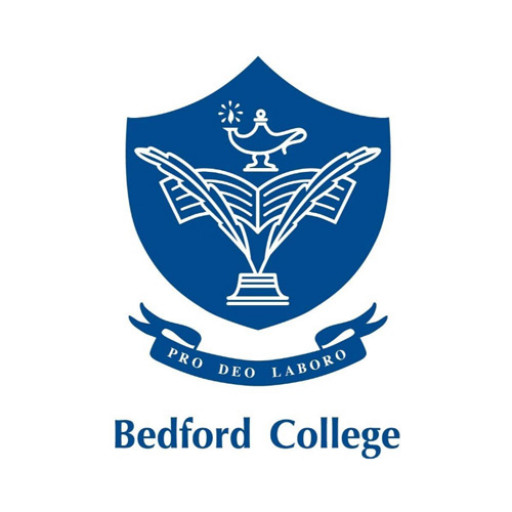Photos of university / #ucl
Professional Education and Training at University College London offers a comprehensive pathway designed to equip educators, trainers, and education professionals with the essential skills and knowledge needed to excel in diverse teaching environments. This programme is tailored for those who are committed to lifelong learning and aspire to enhance their pedagogical expertise through rigorous academic and practical training. Participants will engage with a wide range of topics, including curriculum development, assessment strategies, educational psychology, inclusive education, and innovative teaching methodologies. The curriculum integrates theoretical foundations with real-world applications, ensuring graduates are well-prepared to address the evolving challenges in education sectors across different contexts. Delivered by leading experts in the field, the programme combines lectures, workshops, hands-on projects, and collaborative learning opportunities to foster critical thinking, reflective practice, and professional growth. Students will also explore contemporary issues such as digital learning, education policy, and intercultural competence, enabling them to adapt effectively to diverse educational settings. The programme emphasizes a flexible study structure, allowing part-time or full-time engagement to accommodate working professionals. Upon completion, graduates will receive an official qualification recognized within the UK and internationally, opening doors to advanced roles in educational leadership, curriculum design, training development, and consultancy. With UCL's rich academic tradition and strong research base, students gain access to extensive resources, networks, and cutting-edge educational research. This programme aims to empower education professionals to deliver high-quality learning experiences, foster inclusive environments, and contribute positively to the development of education systems worldwide. Whether you are an early-career educator seeking to deepen your expertise or an experienced trainer aiming to update your skills, the Professional Education and Training programme at UCL offers a robust platform for professional advancement and impactful contribution to education.
This programme will give students critical insight into a range of theories, perspectives and approaches for studying policies and practices in professional education and training and how they might apply these in their workplace. It will develop understanding of conceptual and analytical frameworks in professional education and training and how they can be used to develop expertise.
Students undertake modules to the value of 180 credits.
The programme consists of two core modules (60 credits), and either two optional modules (60 credits), and a dissertation (60 credits), or three optional modules (90 credits) and a report (30 credits).
A Postgraduate Diploma, two core modules (60 credits), two optional modules (60 credits), full-time nine months or flexible study up to five years, is offered.
A Postgraduate Certificate, one core module (30 credits) and one optional module (30 credits) or two core modules (60 credits) flexible study over a period of up to two years.
Core modules
- Professional Enquiry
- Professionalism and Expertise: Theories and Perspectives
Optional modules
- Learning and Teaching for Adults
- Learning and Working in International Contexts
- Perspectives on Adult Literacy, Language and Numeracy
- Vocational Learning: Policy and Practice
Dissertation/report
All students undertake an independent research project which culmintates either in a dissertation of 20,000 words (60 credits) or a report of 10,000 words (30 credits).
Teaching and learning
Teaching is delivered both face-to-face and online and includes lectures, plenary discussion/question and answer sessions, small group work and tutorials. In addition, online students use whiteboard, audio channel, text chat, polling, discussion groups, desktop sharing and breakout rooms. Assessment is by written assignments, portfolio and a dissertation or report.
A minimum of a second-class Bachelor's degree from a UK university or an overseas qualification of an equivalent standard and relevant professional experience is required.
Commonwealth Shared Scholarship Scheme (CSSS)
Value:
Full fees, flights, stipend, and other allowances (1 year)
Eligibility:
Overseas students
Criteria:
Based on both academic merit and financial need
The Professional Education and Training program at University College London (UCL) is designed to equip students with advanced knowledge and practical skills necessary for a successful career in their chosen professional fields. This program typically focuses on developing competencies that are directly applicable to real-world problems, emphasizing hands-on experience and industry relevance. UCL's approach to professional education involves a combination of rigorous coursework, case studies, collaborative projects, and internships, allowing students to engage actively with the current challenges faced by industries and organizations.
The curriculum is often tailored to meet the requirements of various sectors, including education, healthcare, engineering, business, and technology. Courses are taught by leading academics and professionals who bring a wealth of experience and expertise, ensuring that students receive a high-quality education grounded in the latest developments and best practices. The program encourages critical thinking, innovation, and leadership, aiming to prepare graduates not just for current job roles but also to adapt to future industry changes.
UCL’s emphasis on interdisciplinary learning enhances the professional competency of students, enabling them to work effectively across various sectors and in diverse environments. The program includes modules on professional ethics, policy development, management strategies, and technical skills, providing a well-rounded foundation for professional growth. Moreover, students benefit from UCL's extensive network of alumni and industry partners, offering opportunities for networking, mentorship, and employment.
Admission to the program typically requires a relevant undergraduate degree and professional experience, ensuring that participants are committed and prepared for advanced study. The duration of the program can range from one to two years, depending on the structure and specialization chosen. Upon completion, graduates often receive a recognized qualification that enhances their career prospects, supports professional development, and opens doors to leadership positions.
Overall, UCL's Professional Education and Training program aims to foster lifelong learning, promote professional excellence, and contribute to the development of skilled, innovative, and adaptable professionals capable of making significant impacts in their fields.




